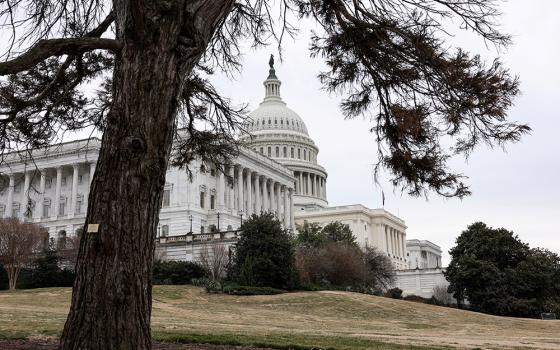
(Unsplash/Jon Tyson)
My mind wandered one evening as I read Psalm 23:2: "He leadeth me beside the still waters." Many songs have been composed based on this verse, and I began to wonder how our leaders lead us on. Do they really lead us to still waters? A sister with whom I was conversing on these lines spontaneously said that most of our leaders lead us to troubled waters, and they land us into trouble as well. We had a hearty laugh. But this is true, isn't it?
Some of them imagine they are in ancient India, as kings and princes surrounded by court poets and jesters who heaped praises on their rulers and nothing else. Others imagine themselves to be semi-gods worthy of worship and free from all blemishes. Most of them care less for their countries or communities and have only one concern — to hold on to their chairs!
Many of the burning issues of our times are the making of these leaders who revel in the heat of these issues. With their egos puffed up, they fail to see the social realities, and even if they do so, they act with an "I-know-it-all" attitude. They also traverse the path of "comparison and competition." All that they long for is the limelight. Sometimes, we get a feeling that our religious leadership is no exception to these "ways of the world." Henri Nouwen described it well in his In the Name of Jesus, as he enumerated three temptations to which leadership succumbs: to be relevant; to be spectacular; and to be powerful.
To be relevant is a temptation as many seek the populist way of thinking and responding. Instead of being focused on values, they assume issues to be value-free and thus end up making wrong decisions. If only leaders could discern. When good leaders discern, they are also concerned with a sustainable future and not just the temporary moment of fame and glory. Some leaders, especially religious, hop from one program to another and get caught up with mega-events (or shows), forgetting the essence of our spiritualities, of seeing God in the ordinary. Many leaders would like to be less accountable, considering power as an act of unaccountability. Remember the famous phrase attributed to Frank Hague, "I am the Law"?
Advertisement
True leaders are those who are aware of these three temptations and progress carefully, not falling prey to them. They stay sufficiently grounded and deeply centered. They are aware of their vulnerable selves and critically discern where God is leading them. They act not out of compulsions or comparisons but out of a deep serenity that emerges from a calm inner space. It is a space free of clutter and stress. This inner space is free of all beliefs, ideas, compulsions, perspectives and unresolved matters. Their focus is only on truth and the common good of everyone. They don't seek to be spectacular but seek newness and joy in the ordinary.
They are filled with radical love, a love that looks for the lost and goes in search of them. The voiceless and the unheard find a voice in them. They ask the world to "listen" to these voices, and they set an example of intent listening which involves more than mere listening. It would mean listening with radical love as God listened to the cries of his people (Exodus 3:7-12). Sometimes, listening might appear to be a powerless act! But intent listening is very powerful, and only those who are filled with love can listen, and love is powerful. Dietrich Bonhoeffer, a German Protestant theologian, said: "He who can no longer listen to his brother will soon be no longer listening to God either; he will be doing nothing but prattle in the presence of God too."
Do our leaders listen? We have leaders who lobby, or are techno-savvy, dynamic, problem fixers, innovative or charismatic. Everything except listeners! Listening is an art, and maybe it is time that our leaders learn this art.
We need leaders with a certain depth who listen to the call of their people. Thus to lead is indeed a call. It is not a puppet show or a purported show. It is not a call to "prove" one's worth or to display the skillful mastery of perfection. Rather, it is to stand before the world with nothing to offer but one's vulnerable self. It is to enter into the deep pain of human suffering with deeper solidarity. It is to lead with one's life.
Finally, we need leaders who will also pray, and lead us on!






